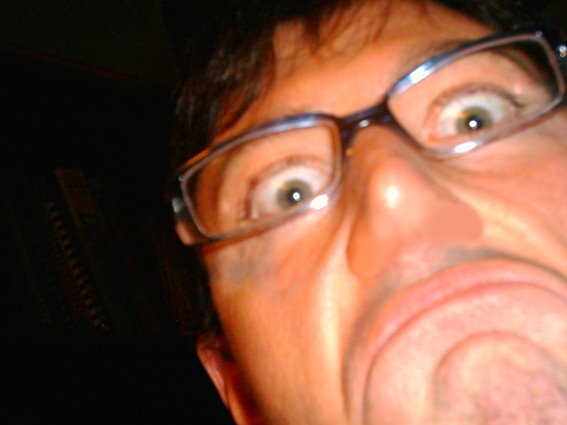La cannabis può ormai far parte dell'eziologia delle psicosi, perfino l'Independent, il giornale che fu leader nella campagna pro liberalizzazione, ha cambiato rotta a causa dei molti dati accumulati nell'ultimo decennio. Alcune delle ricerche al riguardo sono state condotte proprio dal team di psichiatri che si era battuto a favore della liberalizzazione. Anche io sono stato scettico fino all'ultimo, ma è importante mettere le proprie opinioni personali al confronto con i dati.
Dr. Roberto Barasin
http://www.schizophreniaforum.org/new/detail.asp?id=1384
8 August 2007. “We believe that there is now enough evidence to inform people that using cannabis could increase their risk of developing a psychotic illness later in life,” write the authors of a literature review in the July 28 Lancet. The new meta-analysis and review by Stanley Zammit and Theresa H. M. Moore, both of Cardiff University, and other researchers in the United Kingdom addresses methodological issues that could account for observed causal links between psychosis and cannabis. In an accompanying editorial, Merete Nordentoft and Carsten Hjorthøj of Copenhagen University Hospital in Denmark write, “The assessment of adjustment for confounding factors and transitory effects of cannabis intoxication is done more thoroughly than in previous reviews.”
Researchers have noted many links between psychosis and cannabis. For instance, people with schizophrenia seem to be more likely than others to abuse substances (Krystal et al., 2006). Furthermore, a Dutch study (Ferdinand et al., 2005) showed that cannabis use predicts future psychotic symptoms in individuals who have never experienced them before, and that people with psychotic symptoms are more likely to start using cannabis. In their current paper, first author Moore and associates note that the drug’s effects on dopaminergic, GABAergic, and glutamatergic neurons echo the abnormalities seen in people with psychotic disorders. Yet, the question of whether using cannabis causes psychotic disorders has resisted easy answers.
A 2005 meta-analysis, led by Cécile Henquet of Maastricht University in the Netherlands (Henquet et al., 2005), estimated that previous cannabis use doubles the risk of developing psychosis, independently of possible confounding factors. However, Zammit and colleagues took further steps to rule out alternative explanations, such as the possibility that researchers were confusing short-term effects of cannabis intoxication with symptoms of psychosis. In addition, they looked at affective as well as psychotic outcomes.
The Lancet reviewers combed electronic databases, scoured reference lists in papers, and consulted with experts to identify population-based longitudinal studies, as well as case-control studies nested within longitudinal designs. They searched nine databases for reports of human studies in any language that discussed cannabis in relation to psychosis, schizophrenia, depression, or affective disorders.
The search for psychosis studies yielded 11 reports, which presented findings from five adult population-based cohorts and two birth cohorts. Some looked only at psychotic symptoms; others examined psychotic disorders, in which symptoms impair functioning.
Moore and associates pooled the results of the seven studies to conduct a meta-analysis, finding an increased risk of psychotic outcomes in people who had ever used cannabis, even after controlling for a host of possible confounders such as premorbid markers of schizophrenia risk (adjusted odds ratio = 1.41, 95 percent confidence interval = 1.20-1.65). An analysis of the six studies that assessed frequency of use found results consistent with a dose-response relationship in that individuals who often used cannabis were about twice as likely as others to have a psychotic outcome (adjusted odds ratio = 2.09, 95 percent confidence interval = 1.54-2.84).
Recognizing that psychotic symptoms can occur without full-blown psychosis, the reviewers zeroed in on the studies that looked at the risk of developing a psychotic disorder. They included a Swedish study that looked at schizophrenia as an outcome; a Dunedin, New Zealand, study that examined schizophreniform disorder; and a Dutch study on psychotic disorders. Their analysis of combined data from the three studies showed an increased likelihood of psychotic disorders in individuals who had ever used cannabis (adjusted odds ratio = 2.58, 95 percent confidence interval = 1.08-6.13).
“Because most of the studies for psychosis excluded people with psychosis at baseline, the observed associations are unlikely to reflect reverse causation,” Zammit and colleagues write. Still, they wondered whether acute intoxication effects could have inflated the estimates of a causal link. Despite efforts in most of the psychosis studies to limit such effects, the researchers warn that they can be hard to differentiate in daily cannabis users.
The studies of depressive outcomes looked at 15 cohorts, but produced inconsistent results concerning a possible causal role of cannabis. Many of them lacked statistical power. However, an analysis of pooled results from the studies that assessed use frequency found an increased risk in frequent users compared to non-users (adjusted odds ratio = 1.49, 95 percent confidence interval = 1.15-1.94).
Seven studies looked at anxiety. Two found a connection between anxiety outcomes and cannabis use that survived adjustment for confounders.
Some of the studies of affective outcomes tried to control for reverse causation by excluding subjects with affective symptoms at baseline or statistically controlling for baseline measures of the outcome, but seven did neither. None of the studies on affective outcomes reported attempts to rule out intoxication effects, but some of their diagnostic methods may have excluded subjects with acute symptoms of intoxication.
Some researchers have raised the possibility that cannabis use by young people, whose brains are still developing, may be particularly likely to increase psychosis risk (see Viveros et al., 2005 for a discussion of animal studies on this topic). According to Moore and colleagues, “Arguments for why earlier use of cannabis might have more harmful effects are intuitively compelling, but no robust evidence supports this view.” If age at first use does matter, limited evidence, from the Dunedin cohort, suggests that it could be through effects of the catechol-O-methyltransferase (COMT) gene in those who started using before age 18. The gene’s involvement in dopamine catabolism has made it a target of schizophrenia research (for more about the dopamine hypothesis in schizophrenia, see SRF Current Hypotheses discussion by Anissa Abi-Dargham).
Moore and colleagues believe that further observational studies will do little to resolve any lingering doubt about whether cannabis causes psychosis. Nor do they see much potential for randomized, controlled trials of medical cannabis to answer this question because of differences between medical and recreational forms of the drug. Rather, they contend, “animal models of long-term effects of cannabis on neuropsychological domains relative to psychotic or affective states” would shed more light.
Putting the review into perspective, Nordentoft and Hjorthøj note that its “odds ratio results for psychosis are more reliable and also more modest than seen in previous publications.” Even so, Zammit and colleagues write, “Although individual lifetime risk of chronic psychotic disorders such as schizophrenia, even in people who use cannabis regularly, is likely to be low (less than 3 percent), cannabis use can be expected to have a substantial effect on psychotic disorders at a population level because exposure to this drug is so common.”—Victoria L. Wilcox.
References:
Moore THM, Zammit S, Lingford-Hughes A, Barnes TRE, Jones PB, Burke M, Lewis G. Cannabis use and risk of psychotic or affective mental health outcomes: A systematic review. Lancet. 2007 July 28; 370:319-328. Abstract
Nordentoft M, Hjorthøj C. Cannabis use and risk of psychosis in later life. Lancet. 2007 July 28; 370:293-294. Abstract
Iscriviti a:
Commenti sul post (Atom)




Nessun commento:
Posta un commento